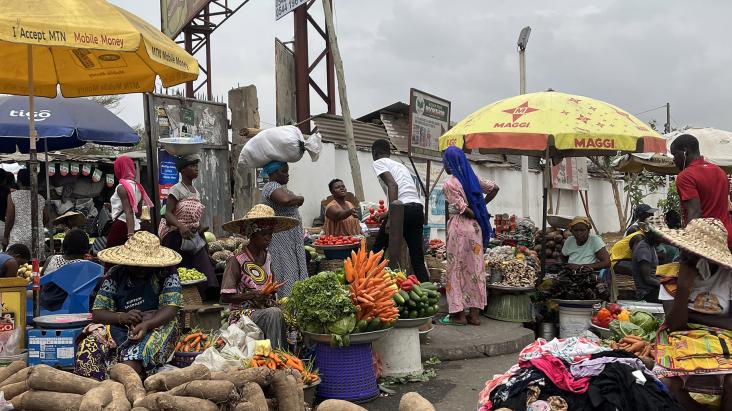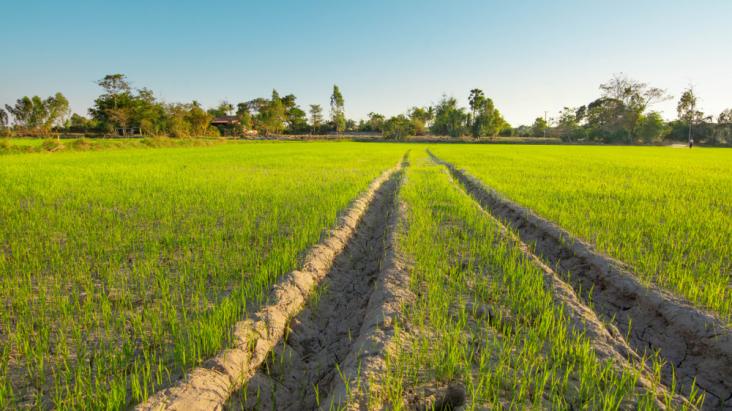Responsible Investment in Agriculture
Investment has an important role to play in driving the transition to more equitable, resilient, and sustainable food systems. IISD provides evidence, tools, training, and advice to governments, investors, and other stakeholders to promote responsible investments that address rather than exacerbate social and environmental challenges related to agriculture and food systems.
Greater public and private investment is needed to drive the transition to more sustainable agriculture and food systems. However, such investments need to be done responsibly to ensure they address rather than exacerbate social and environmental challenges. Governments need to regulate investments to avoid risks such as the displacement of marginalized rural communities or the destruction of local ecosystems. Private financial investors and agribusinesses should similarly have strategies in place to ensure that their operational practices and procedures lead to sustainable agricultural outcomes.
IISD aims to align investment practices in the food and agriculture sectors with sustainable development goals by promoting fair, environmentally responsible investments that spur economic growth in developing countries. This work is informed by the Principles for Responsible Investment in Agriculture and Food Systems (CFS-RAI), which were endorsed by the Committee on World Food Security (CFS) in 2014. These principles provide a comprehensive framework on what constitutes a “responsible investment” in agriculture and food systems.
We conduct research, foster inclusive dialogue, and support policy-makers to establish legal and policy frameworks that encourage responsible private sector investment in agriculture and food systems, particularly in low-income developing countries. We also support parliamentarians, civil society actors, and the private sector in playing effective roles in creating an enabling environment for responsible investment in agriculture and food systems. And we work with partners and private sector actors to create tools and resources to help businesses align their practices and procedures with responsible business conduct.
To support these stakeholders, we have developed innovative and practical tools tailored to their roles and needs. These include model contract clauses for government officials, handbooks for parliamentarians, guides for local communities and civil society organizations, and evidence and tools to help financial investors and agribusinesses invest responsibly.
Our Projects, Services, and Tools

Advice and Support for Governments on Promoting Responsible Investment in Agriculture
IISD provides demand-driven advice, support, and training to help governments establish robust laws and policies for promoting responsible investment in agriculture.

Supporting Investors and Agribusinesses to Invest Responsibly in Food and Agriculture
Evidence and tools to help investors and agribusinesses apply principles for responsible investment in agriculture and food systems.

The IISD Model Contract Clauses for Responsible Investment in Agriculture
Customizable legal provisions to help implement international principles, guidance, and best practices on promoting responsible investment in agriculture.

The ASEAN Guidelines on Promoting Responsible Investment in Food, Agriculture and Forestry (ASEAN RAI)
IISD supports the implementation of the ASEAN RAI to promote more responsible investment in the region’s agriculture and food systems.

Working With Parliamentarians on Responsible Investment in Agriculture and Food Systems
IISD works with parliamentarians to help them strengthen legal and policy frameworks for responsible investment in agriculture in their countries.

Model Agreement for Responsible Contract Farming
A simple and practical legal tool for buyers and producers to improve their business relations and to help make responsible agricultural investment a reality.
Research and publications

Best Practices Bulletins: Legal tools for responsible investment in agriculture
This series analyzes legal instruments that governments can use to promote responsible investment in agriculture and food systems.

Food and Agriculture: Emerging Policy Issues
This series examines emerging issues affecting the resilience and sustainability of agriculture and food systems, particularly in developing countries.

Stories of Change
This series examines legal or policy reforms in agriculture and food systems from the perspective of those driving the reforms.
Project team

Nathalie Bernasconi-Osterwalder
Vice-President, Global Strategies and Managing Director, Europe

Nyaguthii Maina
Associate

Hafiz Mirza
Senior Associate, Responsible Agricultural Investment Research

Suzy H. Nikièma
Director, Investment

Ronald Tundang
Associate

Sean Woolfrey
Lead, Sustainable Agriculture and Food Systems
Latest
You might also be interested in
Supporting Investors and Agribusinesses to Invest Responsibly in Food and Agriculture
Evidence and tools to help investors and agribusinesses apply principles for responsible investment in agriculture and food systems.
Advice and Support for Governments on Promoting Responsible Investment in Agriculture
IISD provides demand-driven advice, support, and training to help governments establish robust laws and policies for promoting responsible investment in agriculture.
Evidence on Investing Responsibly in Agribusinesses: A series of case studies
A series of case studies exploring agribusinesses’ experiences in applying principles for responsible investment in agriculture.
Fair and Sustainable Trade in Food and Agriculture
IISD conducts research and facilitates dialogue to help bring about trade rules that promote equitable and sustainable international trade in food and agricultural products.
